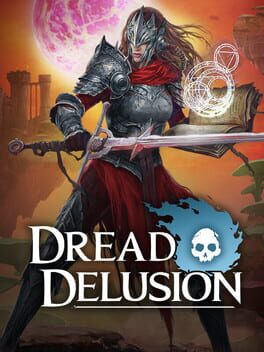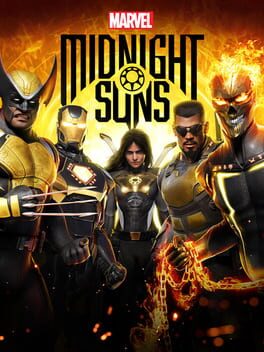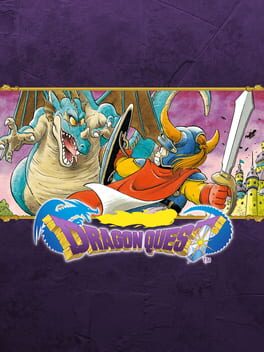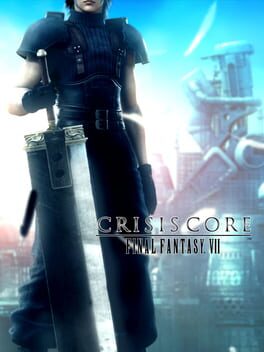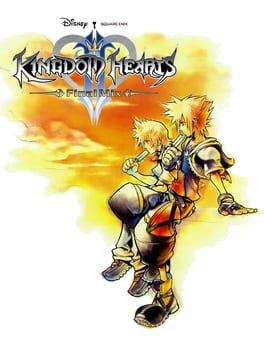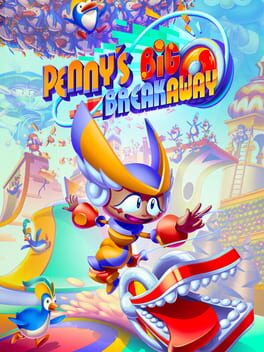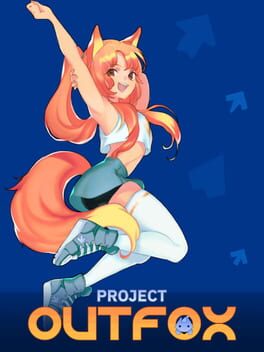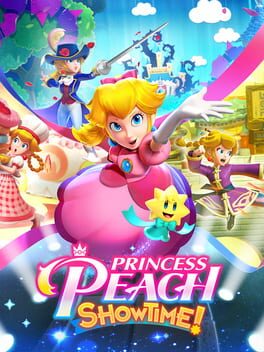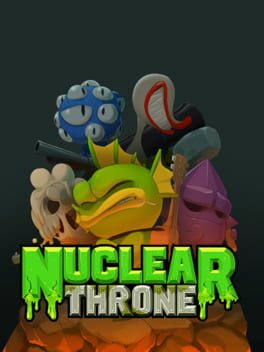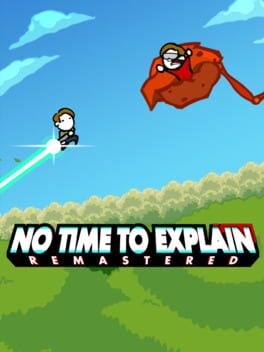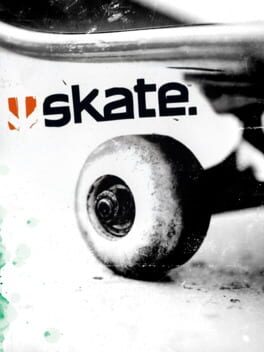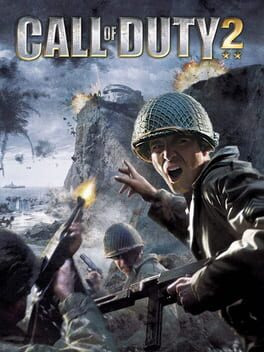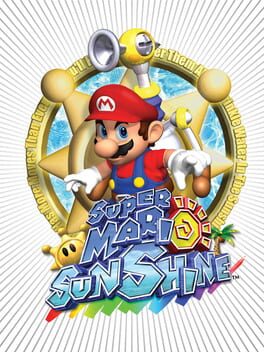Rebao
102 Reviews liked by Rebao
Hades
2018
only so many times I can go thru the same floors with the same enemies and the same bosses and the same weapons and the same everythings. for something so lauded I expected some variety. I'm sure some bozo will tell me "umm actually curse, there's six billion lines of bespoke artisinal stone baked dialogue" but you can blow it out your ass if the whole thing's contingent on slaving away in the metalayer currency mines for hours on end
every room seems to go on forever man. imagine if in isaac or monolith you cleared a room and then it filled back up with the same shit five more times. what the fuck guys? you have like four enemies per zone, you don't need to rub it in. is the expectation that I'm basking and luxuriating in these encounters? I'm not. I'm bored before I hit the third floor
maybe it gets better once I suck up to every NPC and collect all the gizmos and upgrade the weapons and upgrade the dungeon and upgrade the shop and upgrade the trinkets and fill out my pokedex, but I'll never know. I fuck with greek mythology when it's about cronus eating his kids and perseus cutting heads and severed testicles goin in the sea, but I don't think I'm the target audience for this kinda snarky post-tumblr young adult stuff. I'm glad folks like jacking off to it, I guess?
probably beats playing it!
every room seems to go on forever man. imagine if in isaac or monolith you cleared a room and then it filled back up with the same shit five more times. what the fuck guys? you have like four enemies per zone, you don't need to rub it in. is the expectation that I'm basking and luxuriating in these encounters? I'm not. I'm bored before I hit the third floor
maybe it gets better once I suck up to every NPC and collect all the gizmos and upgrade the weapons and upgrade the dungeon and upgrade the shop and upgrade the trinkets and fill out my pokedex, but I'll never know. I fuck with greek mythology when it's about cronus eating his kids and perseus cutting heads and severed testicles goin in the sea, but I don't think I'm the target audience for this kinda snarky post-tumblr young adult stuff. I'm glad folks like jacking off to it, I guess?
probably beats playing it!
Dread Delusion
2022
where most roleplaying spaces unfurl into greater mechanical, numerical dimensions, this only gets more and more hazy and frictionless over time, taking on a melancholic quality as you soar and glide effortlessly thru the world; decadent accumulation carving an ever-increasing gulf between You and Everything Else
sprawling curiosities, unreliable histories, and warbly metaphysics never making peace or finding balance with the ceaseless extrinsic rewards. excavation and communion of the dream growing distant as you pawn off Squirming Godlings to the highest bidder, buy out every house on the market, and upgrade weapons you don't need to kill things that pose no threat to acquire items you won't use
it's all the more uncanny cos none of the perverse little interloper privileges are of much benefit to you. save for a couple sloppy dungeon crawls dredged up out of the early 2000s there's hardly anything that demands to be solved thru violence or expenditure. all that hard power amounts to nothing compared to having a bunch of stats invested in candles
I agree with more or less every criticism that's been brought up to some extent, and I'm pretty sure that people who say it's like king's field probably send cryptograms to local newspapers when they're not LYING on the internet, but I like what's here more than I'm bothered by what isn't: the exploration and quaint little cartography; the surprising tenderness; the strange, incidental mode of unheroism; the disinterest in blood n bone problem solving; even the shameless Michael Kirkbride ReShade bits
when you make The Object Graveyard I can no longer take umbrage with your boss hitboxes being too tall to hit my character or the earlygame revolving around lockpicking for lockpicks so you can lockpick for exp to upgrade your lockpicking. I don't care, I just wanna see what's on that island over there
anyway, check it out: the swords are kissing
sprawling curiosities, unreliable histories, and warbly metaphysics never making peace or finding balance with the ceaseless extrinsic rewards. excavation and communion of the dream growing distant as you pawn off Squirming Godlings to the highest bidder, buy out every house on the market, and upgrade weapons you don't need to kill things that pose no threat to acquire items you won't use
it's all the more uncanny cos none of the perverse little interloper privileges are of much benefit to you. save for a couple sloppy dungeon crawls dredged up out of the early 2000s there's hardly anything that demands to be solved thru violence or expenditure. all that hard power amounts to nothing compared to having a bunch of stats invested in candles
I agree with more or less every criticism that's been brought up to some extent, and I'm pretty sure that people who say it's like king's field probably send cryptograms to local newspapers when they're not LYING on the internet, but I like what's here more than I'm bothered by what isn't: the exploration and quaint little cartography; the surprising tenderness; the strange, incidental mode of unheroism; the disinterest in blood n bone problem solving; even the shameless Michael Kirkbride ReShade bits
when you make The Object Graveyard I can no longer take umbrage with your boss hitboxes being too tall to hit my character or the earlygame revolving around lockpicking for lockpicks so you can lockpick for exp to upgrade your lockpicking. I don't care, I just wanna see what's on that island over there
anyway, check it out: the swords are kissing
considering WotC and chimera squad were already Figurative Marvel Shit, the pivot to Literal Marvel Shit is about the least surprising thing ever; if you didn't see this coming I suggest staying out of the entrail reading business. the real surprise here's that everyone buried the lede blubbering about deckbuilding stuff so thoroughly that I had no idea this was Meet n Fuck Marvel
not since borderlands 2 has a game's dialogue filled me with the primal unease of an ape seeing a particularly snakelike vine. started this up while my wife was in the shower and when she texted asking if I could make some coffee I knew the choice was to smash ALT+F4 or risk being divorced on the spot
the cardgame bit I'm kinda whatever about. I think I'd like it more if the camera was positioned anywhere else and it didn't lean so hard into Epic Cinematic Presentation that even the most basic actions take a century to unfold. it's cool you can do the type of MTG blue deck bullshit where your turn lasts so long the person on the other side of the table regrets being a nerd, but not cool enough to endure the simpering social layer, endless cutscenes, and deranged tutorializing that make up the bulk of the game
have to imagine you'd have a better time stuffing hulk hands in your ass while playing slay the spire
not since borderlands 2 has a game's dialogue filled me with the primal unease of an ape seeing a particularly snakelike vine. started this up while my wife was in the shower and when she texted asking if I could make some coffee I knew the choice was to smash ALT+F4 or risk being divorced on the spot
the cardgame bit I'm kinda whatever about. I think I'd like it more if the camera was positioned anywhere else and it didn't lean so hard into Epic Cinematic Presentation that even the most basic actions take a century to unfold. it's cool you can do the type of MTG blue deck bullshit where your turn lasts so long the person on the other side of the table regrets being a nerd, but not cool enough to endure the simpering social layer, endless cutscenes, and deranged tutorializing that make up the bulk of the game
have to imagine you'd have a better time stuffing hulk hands in your ass while playing slay the spire
Dragon Quest
2004
You know how it is. The most an artist's death has gotten me to cry in a long time - the infectious creative energy I've felt lent down to me from his work is something that'll never leave me. And just like everyone else, I've found myself pouring through dozens and dozens of heartfelt tributes to the man's legendary career. But reading it all got me thinking...ain't the meat and potatoes reputation Dragon Quest has earnt itself kind of like, an error? An impossibility?
So, lemme ask you a question: when's the first time you saw something that made you think "Dragon Quest is cool"? I couldn't tell you what mine was, but recently finishing a full playthrough of the original NES Dragon Warrior pulled me back into the correct reality in which this series was not "generic", but an outlier in style. Toriyama's enthusiasm to play the hits puts the personality on display in its monsters maybe 20 years ahead of the curve. As an aside, I also recommend to anyone playing any older Dragon Quest to look up some scans of the old manuals; the effortless coolness of his artstyle had already bled into DQ's identity.
You could call this game a "grind", but the grind is the gameplay and the gameplay is good. Each individual battle is simple to solve in a bubble, but enemies are split between the ones you can defeat with or without expending resources - instantly spiraling the world into an ever-evolving puzzle to solve. Planning out a trajectory of travel immediately prompts a dizzying amount of dice rolls in your head: how many resources should I spend to gain EXP? How much should I dice roll running away, and how much magic will I have left to heal myself up considering both the expected and unexpected outcomes? Inner workings filled with perfect math to never quite satisfy things with a clear answer; but what raises this from good to great is how through my entire time playing the game, I always undershot my potential. Enemies that are apparently stronger than you can be taken down with perfect resource management, finding consistency in a haze of lottery tickets that makes you feel genius every time you take one down and keep a little more magic for the rest of the trip than your last encounter with the same guy.
And in comparison to how grinding is often characterized as a boring chore-like task, I think playing this game is way closer to exhausting - you can do a good run, and do another, and then lose to a Skeleton you've already defeated 10 times and now half your gold is gone. You probably haven't even made it halfway to the level you want yet! But for every moment of flighty confusion, there's also a moment where you get to level 3, gain heal, and kill the first slime you see in one hit.
and that's how they get you
Random encounters are most frequently characterized as one of those unsavory bits of RPG we chop off, but playing this helped click into place how much texture can be applied to identical floor tiles simply by the difference in looming threat. The invisible encounter sheet constantly shifting under your feet giving cool and hostile sensation to each step, and when you realize you can kill something that once scared you off, the level design changes. Reinforces the process of seamless non-linear exploration with an information game unique to the format - a grind made engaging by the real question being where to even grind in the first place. This is an RPG with no vestigial limbs. Every single part of an RPG you've questioned the integral elements of is present working in perfect harmony with each other; last year, I found myself actively frustrated playing a newly released turn-based RPG in which the mindlessness of each individual encounter serves no purpose. Without long-term resource management, of course random encounters are boring! Or, in contrast to RPGs where levels feel like guided progress, here, lower level enemies to begin to run away, breaking the consistency of previously successful sources of experience and gold. Now, with every moment of newly found strength matched by a push out of my comfort zone, I'm like "ohhh i get it now"
and they got me
This is all coming from a relatively young person's perspective (i turned 22 around when i wrote most of this happy birthday me :D ), so there's this tough balance to reach when it comes to simultaneously embracing that sometimes, traits of oldness are endearing to me, and making sure I don't sound like I am looking down on something, or it's a novelty.
In the past few months, I ended up playing a bunch of games from the mid-late 2000s, and it was easy to lose yourself in a sea of fifteen year old Gamefaqs threads, and chat with people just a bit older than me who experienced all these things organically in their childhood. Especially due to growing up with games from the same era, it was easy for me to imagine myself playing these as a kid, wondering how this could've effected me sooner. Dragon Quest on the contrast is for a bit older of a generation than me, especially with some of its strongest cultural imprint existing beyond language barrier. I played this alongside someone close to me - we honestly couldn't stop gushing to each other about how satisfying the sleuthing was as we kept a million notes marked down. There's a great moment in which a secret that's visibly hinted to you in one of the last towns has an equivalent but invisible secret in one of the first towns; this is one of the oldest games I've played with a strong design language. Things like this got us close to that ideal you hear of pen and paper hint tracking. Eventually, it became natural to feel like playing the game like this was making me fall into the past footsteps of someone else; it's hard not to romanticize it like we were 2 little kids playing the game lit by nothing but the humming static of a CRT. And even though I've literally known people not even a decade older than me that grew up with this game, it's immersing myself in a distinctly different time-frame from usual that makes that era feel so far away. It's that solidarity with a perspective just out of reach that starts positively haunting the game with the ghost of lived experience.
So, lemme ask you a question: when's the first time you saw something that made you think "Dragon Quest is cool"? I couldn't tell you what mine was, but recently finishing a full playthrough of the original NES Dragon Warrior pulled me back into the correct reality in which this series was not "generic", but an outlier in style. Toriyama's enthusiasm to play the hits puts the personality on display in its monsters maybe 20 years ahead of the curve. As an aside, I also recommend to anyone playing any older Dragon Quest to look up some scans of the old manuals; the effortless coolness of his artstyle had already bled into DQ's identity.
You could call this game a "grind", but the grind is the gameplay and the gameplay is good. Each individual battle is simple to solve in a bubble, but enemies are split between the ones you can defeat with or without expending resources - instantly spiraling the world into an ever-evolving puzzle to solve. Planning out a trajectory of travel immediately prompts a dizzying amount of dice rolls in your head: how many resources should I spend to gain EXP? How much should I dice roll running away, and how much magic will I have left to heal myself up considering both the expected and unexpected outcomes? Inner workings filled with perfect math to never quite satisfy things with a clear answer; but what raises this from good to great is how through my entire time playing the game, I always undershot my potential. Enemies that are apparently stronger than you can be taken down with perfect resource management, finding consistency in a haze of lottery tickets that makes you feel genius every time you take one down and keep a little more magic for the rest of the trip than your last encounter with the same guy.
And in comparison to how grinding is often characterized as a boring chore-like task, I think playing this game is way closer to exhausting - you can do a good run, and do another, and then lose to a Skeleton you've already defeated 10 times and now half your gold is gone. You probably haven't even made it halfway to the level you want yet! But for every moment of flighty confusion, there's also a moment where you get to level 3, gain heal, and kill the first slime you see in one hit.
and that's how they get you
Random encounters are most frequently characterized as one of those unsavory bits of RPG we chop off, but playing this helped click into place how much texture can be applied to identical floor tiles simply by the difference in looming threat. The invisible encounter sheet constantly shifting under your feet giving cool and hostile sensation to each step, and when you realize you can kill something that once scared you off, the level design changes. Reinforces the process of seamless non-linear exploration with an information game unique to the format - a grind made engaging by the real question being where to even grind in the first place. This is an RPG with no vestigial limbs. Every single part of an RPG you've questioned the integral elements of is present working in perfect harmony with each other; last year, I found myself actively frustrated playing a newly released turn-based RPG in which the mindlessness of each individual encounter serves no purpose. Without long-term resource management, of course random encounters are boring! Or, in contrast to RPGs where levels feel like guided progress, here, lower level enemies to begin to run away, breaking the consistency of previously successful sources of experience and gold. Now, with every moment of newly found strength matched by a push out of my comfort zone, I'm like "ohhh i get it now"
and they got me
This is all coming from a relatively young person's perspective (i turned 22 around when i wrote most of this happy birthday me :D ), so there's this tough balance to reach when it comes to simultaneously embracing that sometimes, traits of oldness are endearing to me, and making sure I don't sound like I am looking down on something, or it's a novelty.
In the past few months, I ended up playing a bunch of games from the mid-late 2000s, and it was easy to lose yourself in a sea of fifteen year old Gamefaqs threads, and chat with people just a bit older than me who experienced all these things organically in their childhood. Especially due to growing up with games from the same era, it was easy for me to imagine myself playing these as a kid, wondering how this could've effected me sooner. Dragon Quest on the contrast is for a bit older of a generation than me, especially with some of its strongest cultural imprint existing beyond language barrier. I played this alongside someone close to me - we honestly couldn't stop gushing to each other about how satisfying the sleuthing was as we kept a million notes marked down. There's a great moment in which a secret that's visibly hinted to you in one of the last towns has an equivalent but invisible secret in one of the first towns; this is one of the oldest games I've played with a strong design language. Things like this got us close to that ideal you hear of pen and paper hint tracking. Eventually, it became natural to feel like playing the game like this was making me fall into the past footsteps of someone else; it's hard not to romanticize it like we were 2 little kids playing the game lit by nothing but the humming static of a CRT. And even though I've literally known people not even a decade older than me that grew up with this game, it's immersing myself in a distinctly different time-frame from usual that makes that era feel so far away. It's that solidarity with a perspective just out of reach that starts positively haunting the game with the ghost of lived experience.
This review contains spoilers
[This will contain spoilers for both Crisis Core, and the original FFVII]
Something I don't see a lot of people talk about is how much that disc 3 super-secret Zack flashback cutscene in the original VII rips. Squaresoft's brazen over-dramatism manages to enrich a character with life in such a short time.. Zack is just a peppy boy who loves the sound of his voice so much that he can have a conversation with a comatose dude, and walk away from it satisfied. His death goes on to leave a paralyzed Cloud idolizing his lost friend, subconsciously glamorizing a life that ended without fanfare the moment he tried to escape the system.
Coming off of Crisis Core, the main thought in my head really was...
Did Zack even improve as a character after all of this?
There's some additions I do like here and there; the way Zack is afforded no agency by the plot - aimlessly hovering between the military he serves, and the war against it. The envy he feels for those who have the option to stand up for themselves; it's sooooo almost there. But the plot is just unwilling to express these feelings in anything less than an artsy cutscene. Like..."Those wings, I want them" is coooool but please, let these characters express some mundane natural emotion for once. Maybe I'll regret asking this sort of thing one day; disliking the vision of developers who perfectly capture angst both unspeakable, and awkward when spoken aloud. But every Kingdom Hearts game I've played has the clarity of sincerity somewhere in there. This game's just less well written than Kingdom Hearts
All of this game's problems stem from the way its narrative economy is distributed like the dril candles tweet. There is not a single chapter in this game that spends its time in the right places. When I streamed this to my friends, some of them joked about how often Zack says "huh?" - but it began to become a serious problem that despite playing a reactive role in the plot, Zack doesn't really have reactions. Zack's moment to moment dialogue never quite breaks out of just being another spunky Final Fantasy protagonist pastiche; it becomes obvious this is the spin-off none of the creatives daydreamed about on their lunch breaks. Nojima's side hoe. It's distressing seeing them show us the truth behind a moment like how Zack and Aerith began dating - telling it like the same military boy out of water love story that Cloud went through - and realizing that whatever vague idea I had in my mind was more creative than what this story had to tell. Cloud's entire arc is about him learning that he doesn't need to be Zack, so why do all of their life events have to parallel?
what's up with that one monologue from aerith about hating things that aren't normal. what the fuck lol
But the ending is good. I could nitpick it for sure. I'll at least acknowledge that leaving off on Cloud saying "I'm your living legacy" totally sucks ass, it's the exact opposite of what he needs to learn; he needs to stop trying to be other people. I still like Zack’s death in the FFVII scene more - the rawness of three lone officers gunning him down hits harder for me - but yeaaah, it's iconic. The scream into the fucking Zack AMV rules. But what gets me the most is that this scene isn't even better with the contents of the game. Crisis Core is not a good game, CRISIS CORE FINAL FANTASY VII FULL ENDING & CREDITS (HD) on youtube dot com is. This game was never even about Zack, it was about some other guys.
I think I would hate this game if I saw nothing in Angeal or Genesis. The entire narrative's run-time is cashed in on them, consistently choosing them over meaningfully expanding the few core details we knew about Zack. I think I got close to "getting" Angeal - obv a lot of commentary on wanting to follow the footsteps of flawed idols and the stuff - Genesis was just kinda funny, though. hes gackt up. i laughed rly hard when the game posited that genesis was in the room when sephiroth went crazy at the nibel reactor. But no matter how good of a time I can have watching some fun 2000s Square Enix cutscenes, there isn't a sense of fun in the moment to moment, to give the game any flow; the gameplay SUCKS!!!!!
in our heart or hearts everyone going into this knows at this point that the compilation is the equivalent to those netflix star wars spinoffs. most people are aware of this, and most people also seem to like it anyways. the truth is that what makes square enix unique is that they can't help themselves from imbuing all of their projects with heart. anyone who has ever cried to one of their mickey mouse games should know this. crisis core was always going to be a story about salvaging good human artistic passion from a game assigned to be trashy from birth, and i went into it with the most hopeful mindset i could.
and i dont know if i got anything from it
im still gonna be nostalgic for it in like 5 months
guys im going back to 7 rebirth and i still dont know what cissneis deal is im so fucked
Something I don't see a lot of people talk about is how much that disc 3 super-secret Zack flashback cutscene in the original VII rips. Squaresoft's brazen over-dramatism manages to enrich a character with life in such a short time.. Zack is just a peppy boy who loves the sound of his voice so much that he can have a conversation with a comatose dude, and walk away from it satisfied. His death goes on to leave a paralyzed Cloud idolizing his lost friend, subconsciously glamorizing a life that ended without fanfare the moment he tried to escape the system.
Coming off of Crisis Core, the main thought in my head really was...
Did Zack even improve as a character after all of this?
There's some additions I do like here and there; the way Zack is afforded no agency by the plot - aimlessly hovering between the military he serves, and the war against it. The envy he feels for those who have the option to stand up for themselves; it's sooooo almost there. But the plot is just unwilling to express these feelings in anything less than an artsy cutscene. Like..."Those wings, I want them" is coooool but please, let these characters express some mundane natural emotion for once. Maybe I'll regret asking this sort of thing one day; disliking the vision of developers who perfectly capture angst both unspeakable, and awkward when spoken aloud. But every Kingdom Hearts game I've played has the clarity of sincerity somewhere in there. This game's just less well written than Kingdom Hearts
All of this game's problems stem from the way its narrative economy is distributed like the dril candles tweet. There is not a single chapter in this game that spends its time in the right places. When I streamed this to my friends, some of them joked about how often Zack says "huh?" - but it began to become a serious problem that despite playing a reactive role in the plot, Zack doesn't really have reactions. Zack's moment to moment dialogue never quite breaks out of just being another spunky Final Fantasy protagonist pastiche; it becomes obvious this is the spin-off none of the creatives daydreamed about on their lunch breaks. Nojima's side hoe. It's distressing seeing them show us the truth behind a moment like how Zack and Aerith began dating - telling it like the same military boy out of water love story that Cloud went through - and realizing that whatever vague idea I had in my mind was more creative than what this story had to tell. Cloud's entire arc is about him learning that he doesn't need to be Zack, so why do all of their life events have to parallel?
what's up with that one monologue from aerith about hating things that aren't normal. what the fuck lol
But the ending is good. I could nitpick it for sure. I'll at least acknowledge that leaving off on Cloud saying "I'm your living legacy" totally sucks ass, it's the exact opposite of what he needs to learn; he needs to stop trying to be other people. I still like Zack’s death in the FFVII scene more - the rawness of three lone officers gunning him down hits harder for me - but yeaaah, it's iconic. The scream into the fucking Zack AMV rules. But what gets me the most is that this scene isn't even better with the contents of the game. Crisis Core is not a good game, CRISIS CORE FINAL FANTASY VII FULL ENDING & CREDITS (HD) on youtube dot com is. This game was never even about Zack, it was about some other guys.
I think I would hate this game if I saw nothing in Angeal or Genesis. The entire narrative's run-time is cashed in on them, consistently choosing them over meaningfully expanding the few core details we knew about Zack. I think I got close to "getting" Angeal - obv a lot of commentary on wanting to follow the footsteps of flawed idols and the stuff - Genesis was just kinda funny, though. hes gackt up. i laughed rly hard when the game posited that genesis was in the room when sephiroth went crazy at the nibel reactor. But no matter how good of a time I can have watching some fun 2000s Square Enix cutscenes, there isn't a sense of fun in the moment to moment, to give the game any flow; the gameplay SUCKS!!!!!
in our heart or hearts everyone going into this knows at this point that the compilation is the equivalent to those netflix star wars spinoffs. most people are aware of this, and most people also seem to like it anyways. the truth is that what makes square enix unique is that they can't help themselves from imbuing all of their projects with heart. anyone who has ever cried to one of their mickey mouse games should know this. crisis core was always going to be a story about salvaging good human artistic passion from a game assigned to be trashy from birth, and i went into it with the most hopeful mindset i could.
and i dont know if i got anything from it
im still gonna be nostalgic for it in like 5 months
guys im going back to 7 rebirth and i still dont know what cissneis deal is im so fucked
If Kingdom Hearts was about a group of kids who in their yearning to grow up - despite daydreams of a vaster world - had never once imagined a world without each other, Kingdom Hearts II follows up by painting a group of teenagers who have already learnt what departures feel like. As time trickles down, and your mind prepares you for the pain of goodbyes, you begin to already distance yourself before the end has even arrived; the memory of the last thing you ever said to someone being something insincere.
The type of shit that makes me wanna call Square Enix's engineers "Architects". If you didn't lose it at the spear cutting little strands of Axel's hair, you don't love video games. So many people had praised this prologue, but somehow I can't help but think I still underestimated it - this arc aims so high at bringing its evocative, teenage-angst ridden storyboards to life.
Then something strange starts to happen. You just finished a three hour trek through existentialist melodrama, and now you're playing as Sora and friends on another Disney adventure; forget about that other stuff for now. I'm not here to discuss if Kingdom Hearts as a whole is stupid - we've all gone through that already, and I truly do love this series - but it's clear to me that we're growing out of its blueprint here. I wouldn't like to romanticize Kingdom Hearts 1 - the way it implements the storyline into the Disney worlds has always been teasy - but even its emotional scenes fit into the disney-shaped mold of tones better (remember the forced smile scene?). Cashing in on three years of loose ends had a steep price on the series' cohesion.
II's fractured feel doesn't end at the storytelling. Critical Mode - a post-release addition - has this lustrous reputation behind it as a pinnacle-of-the-genre action game. But as someone who decided to follow that fable and play through the game for the first time through critical, it couldn't be less apparent that the game wasn't designed around this difficulty. The way the game is so eager to simplify itself for a cool setpiece, you can tell this game was originally made to let little kids feel cool. The average character action game fan would lose their shit at the amount of distractions at play here; its new core mechanic is advertised as a QTE button. We all saw something special sparkling in its stitched together identity, though. But why?
The Roxas fight was a bit of an eye-opening example for me: shortly into the fight, he uses a desperation attack: shooting instant-death spheres at you for about five seconds straight. I just couldn't figure out how to dodge it, so I searched for runs of the fight on google, and found:
-Using movement options that I hadn't yet unlocked in my playthrough
-I found one video of a dude walking horizontally into the wall to move at slightly less than regular speed, but couldn't replicate it. unserious
-...most of the videos force the game to skip the phase entirely by doing a tight combo sequence that I wasn't skilled enough to replicate either
And so, the solution I ended up using was to simply use an attack that made me fully invincible for ten seconds at a time. Most intelligently designed game's balancing would crumble under the weight of a single move that functions like that even existing. Sora's toolkit has this irresponsibly large volume to it, so something like a Limit being able to exist, and be a well-balanced creative response is a testament to its design.
Just in my experience playing a lot of action games, putting too much emphasis on parries tends to consume more organic, multi-applicable systems - like positioning, or whiff punishing - and place all the weight on memorization. But Final-Mix-on-crit marries it all together with such finesse!! Long-ranged attacks and safer defensive play are both provided via slick management of your remaining Magic, so when you're burnt out of magic, things gets volatile. Dodges and parries gain equally important weight; every second shaved off your magic burn-out is a grasp to pull the momentum back in your direction. While fighting a boss, I'll form an ideal winning run of actions in my head; but there's always some unforeseeable scenario that'll force me to adapt to a different playstyle on the fly. Sometimes overwhelmed by my own range of options, sometimes the invisible numbers of a boss escaping a combo, sometimes literally just RNG. This is the truest definition of the label "Action RPG"
Anyways, it was like 4AM in the morning - it took me all night to finish the final boss sequence - and I'm sitting here, watching that final cutscene. I realized that any cynicism I had in my body had left it at this point. Unremarkable memories wash away as you get older, and sometimes, you don't return to the source of those memories for a long time; most of the longtime Kingdom Hearts fans I've spoken to seem to be perfectly comfortable discarding the "kinda joyless disney story retellings" part of this one from their minds. You could probably call that a "bias", but as I played this, I realized it's only natural to want to reward a project for trying to shoot as high as this one does.. Kingdom Hearts II itself feels like the type of project where everyone on its staff stared at the budget they had been handed to make a Disney game, and realized that if they managed to sneak it in there, they could shove every special idea they ever had into it. Everyone on the staff eventually became in on it. And by the time it was all over, I too, was in on it.
The type of shit that makes me wanna call Square Enix's engineers "Architects". If you didn't lose it at the spear cutting little strands of Axel's hair, you don't love video games. So many people had praised this prologue, but somehow I can't help but think I still underestimated it - this arc aims so high at bringing its evocative, teenage-angst ridden storyboards to life.
Then something strange starts to happen. You just finished a three hour trek through existentialist melodrama, and now you're playing as Sora and friends on another Disney adventure; forget about that other stuff for now. I'm not here to discuss if Kingdom Hearts as a whole is stupid - we've all gone through that already, and I truly do love this series - but it's clear to me that we're growing out of its blueprint here. I wouldn't like to romanticize Kingdom Hearts 1 - the way it implements the storyline into the Disney worlds has always been teasy - but even its emotional scenes fit into the disney-shaped mold of tones better (remember the forced smile scene?). Cashing in on three years of loose ends had a steep price on the series' cohesion.
II's fractured feel doesn't end at the storytelling. Critical Mode - a post-release addition - has this lustrous reputation behind it as a pinnacle-of-the-genre action game. But as someone who decided to follow that fable and play through the game for the first time through critical, it couldn't be less apparent that the game wasn't designed around this difficulty. The way the game is so eager to simplify itself for a cool setpiece, you can tell this game was originally made to let little kids feel cool. The average character action game fan would lose their shit at the amount of distractions at play here; its new core mechanic is advertised as a QTE button. We all saw something special sparkling in its stitched together identity, though. But why?
The Roxas fight was a bit of an eye-opening example for me: shortly into the fight, he uses a desperation attack: shooting instant-death spheres at you for about five seconds straight. I just couldn't figure out how to dodge it, so I searched for runs of the fight on google, and found:
-Using movement options that I hadn't yet unlocked in my playthrough
-I found one video of a dude walking horizontally into the wall to move at slightly less than regular speed, but couldn't replicate it. unserious
-...most of the videos force the game to skip the phase entirely by doing a tight combo sequence that I wasn't skilled enough to replicate either
And so, the solution I ended up using was to simply use an attack that made me fully invincible for ten seconds at a time. Most intelligently designed game's balancing would crumble under the weight of a single move that functions like that even existing. Sora's toolkit has this irresponsibly large volume to it, so something like a Limit being able to exist, and be a well-balanced creative response is a testament to its design.
Just in my experience playing a lot of action games, putting too much emphasis on parries tends to consume more organic, multi-applicable systems - like positioning, or whiff punishing - and place all the weight on memorization. But Final-Mix-on-crit marries it all together with such finesse!! Long-ranged attacks and safer defensive play are both provided via slick management of your remaining Magic, so when you're burnt out of magic, things gets volatile. Dodges and parries gain equally important weight; every second shaved off your magic burn-out is a grasp to pull the momentum back in your direction. While fighting a boss, I'll form an ideal winning run of actions in my head; but there's always some unforeseeable scenario that'll force me to adapt to a different playstyle on the fly. Sometimes overwhelmed by my own range of options, sometimes the invisible numbers of a boss escaping a combo, sometimes literally just RNG. This is the truest definition of the label "Action RPG"
Anyways, it was like 4AM in the morning - it took me all night to finish the final boss sequence - and I'm sitting here, watching that final cutscene. I realized that any cynicism I had in my body had left it at this point. Unremarkable memories wash away as you get older, and sometimes, you don't return to the source of those memories for a long time; most of the longtime Kingdom Hearts fans I've spoken to seem to be perfectly comfortable discarding the "kinda joyless disney story retellings" part of this one from their minds. You could probably call that a "bias", but as I played this, I realized it's only natural to want to reward a project for trying to shoot as high as this one does.. Kingdom Hearts II itself feels like the type of project where everyone on its staff stared at the budget they had been handed to make a Disney game, and realized that if they managed to sneak it in there, they could shove every special idea they ever had into it. Everyone on the staff eventually became in on it. And by the time it was all over, I too, was in on it.
Wasn't feeling this as much as I thought I would at first, but when you get the hang of the controls everything clicks! Keeping that flow going through the whole level and maintaining your combo can be tricky, but pulling it off is super satisfying. That paired with dreamy visuals and an amazing soundtrack makes for something truly special. Can't wait to see what Evening Star cooks up next.
Project OutFox
2019
Nuclear Throne
2015
In most rogue-likes, you expect to have lots of replayability through the different perks, generated levels, and weapons, but somehow Nuclear Throne makes the most out of what it has.
Everything about Nuclear Throne can be described as grimy and bold. All the different locations are shown as desolate wastelands and the enemies are all mutated creatures or raiders looking to kill you. Everything on the screen pops out and is easy to distinguish which is great when more chaos and explosions start to appear on screen. This art style also works well with the fast-paced gameplay. The sound design perfectly captures the feeling of this game. whether it's the hums of the wasteland or the adrenalin-rushing EDM, it all fits into what's on screen.
One of the main drawbacks of the game would be the lack of different random elements. Most of the time, the stages stay the same and the weapons you can get on each stage are limited, however, I think this is made up through the difficulty of the game and the experience you get from playing. Nuclear Throne is very strict when it comes to health drops or ammo, leaving you very fragile throughout your run. This leads to more times where you die before getting to the final stage, making each level feel intense and rewarding when you move on. Your experience also helps with different secrets that are scattered all across your playthrough giving you different weapons, new stages, and shortcuts to make it to the end faster. All of this manages to make each new tactic feel different and add to the identity of each run.
Even when the game kicks you when you're down, or you manage to get killed by an explosion you could never predict, Nuclear Throne manages to stand at the top of indie rogue-likes. The experiences felt in this game are something that most other games just don't satisfy and that's fine. Nuclear Throne is just a game that stands and will forever stand perfectly fine on its own.
Everything about Nuclear Throne can be described as grimy and bold. All the different locations are shown as desolate wastelands and the enemies are all mutated creatures or raiders looking to kill you. Everything on the screen pops out and is easy to distinguish which is great when more chaos and explosions start to appear on screen. This art style also works well with the fast-paced gameplay. The sound design perfectly captures the feeling of this game. whether it's the hums of the wasteland or the adrenalin-rushing EDM, it all fits into what's on screen.
One of the main drawbacks of the game would be the lack of different random elements. Most of the time, the stages stay the same and the weapons you can get on each stage are limited, however, I think this is made up through the difficulty of the game and the experience you get from playing. Nuclear Throne is very strict when it comes to health drops or ammo, leaving you very fragile throughout your run. This leads to more times where you die before getting to the final stage, making each level feel intense and rewarding when you move on. Your experience also helps with different secrets that are scattered all across your playthrough giving you different weapons, new stages, and shortcuts to make it to the end faster. All of this manages to make each new tactic feel different and add to the identity of each run.
Even when the game kicks you when you're down, or you manage to get killed by an explosion you could never predict, Nuclear Throne manages to stand at the top of indie rogue-likes. The experiences felt in this game are something that most other games just don't satisfy and that's fine. Nuclear Throne is just a game that stands and will forever stand perfectly fine on its own.
Playing No Time to Explain is like opening a time capsule from the time when Newgrounds was still popular and making flash games was the biggest trend.
Each cutscene, level, and story bit just screams the early 2010s with how it can start with a solid plot line and ideas, and just start throwing random switch-ups with different characters or new gimmicks. It's impossible to get bored even with my rotten brain with just how fast things move.
The gameplay isn't anything too special. Levels are short and sweet and each world keeps things fresh, but you can tell that it's a flash game. The levels look like they were made in a simple level editor with how square everything is, but this also works well when it comes to tighter platforming. The other part that feels dated is just the movement and controls. controlling your character can feel a bit off and a little slippery when you're using your abilities and this can lead to some deaths.
It's important to know how important these kinds of games were to people back then and how they influenced future ideas in games. Even when the aging feels apparent and things could be more fleshed out, No Time to Explain just fills me with the joy that only the child in me could feel.
Each cutscene, level, and story bit just screams the early 2010s with how it can start with a solid plot line and ideas, and just start throwing random switch-ups with different characters or new gimmicks. It's impossible to get bored even with my rotten brain with just how fast things move.
The gameplay isn't anything too special. Levels are short and sweet and each world keeps things fresh, but you can tell that it's a flash game. The levels look like they were made in a simple level editor with how square everything is, but this also works well when it comes to tighter platforming. The other part that feels dated is just the movement and controls. controlling your character can feel a bit off and a little slippery when you're using your abilities and this can lead to some deaths.
It's important to know how important these kinds of games were to people back then and how they influenced future ideas in games. Even when the aging feels apparent and things could be more fleshed out, No Time to Explain just fills me with the joy that only the child in me could feel.
Skate
2007
Call of Duty 2
2005
Strange to go back to this and see the way Call of Duty used to be before it went full Michael Bay mode. Not saying this is better, but when the biggest set piece of the game is riding in the back of a truck that's going 40 miles per hour while 1 or 2 explosions pop off in the distance, it feels like a completely different series.
Animal Well
2024
Billy Basso, you beautiful bastard, you did it. How did one guy make this?
I've always been a victim of hyperbole. The internet told me that Animal Well was making people feel things. I listened to YouTube reviewers describe it as a game that reminds you of what gaming is all about. I read tweets calling it an obvious front-runner for GOTY and one of the best, most unique games in a very long time. I'm not about to say those people were speaking disingenuously--I truly believe the 5/5 reviews--but I do think that Animal Well is at its best when its understated and allowed to silently speak for itself.
Not unlike your biological mother, Animal Well is a short, tight, and gorgeous experience that manages to rapidly shift between quaint charm and instinctive terror at the drop of a hat. How Basso managed to jump scare me with a kangaroo that many times is beyond me. A friend described the artstyle as "Neon Wet" and that's probably the best short hand I can give for the game's look without really taking away some of its magic. Just go play the game if the visuals even remotely interest you.
Like all the best horror-adjacent games, your combat options here are extremely limited. Unlike those same horror games, Animal Well takes that lack of offensive capability and uses it to empower you. You are challenged to pause, and contemplate, and plan, and observe--to ask yourself "wait can I do that?" And you usually can. It takes a special game to offer you that sort of reward to meet your effort.
I'm not done with Animal Well. I rolled credits but there's so much game still here (think Fez or Tunic), but I do think I'm at a point where its socially-created hooks aren't as deeply in me. I can sit with it now and enjoy it. That may be how I should have approached the game from the start.
If you plan to play the game, I recommend that you don't go too quickly. Poke around. Mess with things that look out of place and let yourself consider Billy Basso's first game as its own world rather than a "GOTY contender" or "reason to game again." Be a little pensive dude and let yourself get swept up in it all. It's worth that.
I've always been a victim of hyperbole. The internet told me that Animal Well was making people feel things. I listened to YouTube reviewers describe it as a game that reminds you of what gaming is all about. I read tweets calling it an obvious front-runner for GOTY and one of the best, most unique games in a very long time. I'm not about to say those people were speaking disingenuously--I truly believe the 5/5 reviews--but I do think that Animal Well is at its best when its understated and allowed to silently speak for itself.
Not unlike your biological mother, Animal Well is a short, tight, and gorgeous experience that manages to rapidly shift between quaint charm and instinctive terror at the drop of a hat. How Basso managed to jump scare me with a kangaroo that many times is beyond me. A friend described the artstyle as "Neon Wet" and that's probably the best short hand I can give for the game's look without really taking away some of its magic. Just go play the game if the visuals even remotely interest you.
Like all the best horror-adjacent games, your combat options here are extremely limited. Unlike those same horror games, Animal Well takes that lack of offensive capability and uses it to empower you. You are challenged to pause, and contemplate, and plan, and observe--to ask yourself "wait can I do that?" And you usually can. It takes a special game to offer you that sort of reward to meet your effort.
I'm not done with Animal Well. I rolled credits but there's so much game still here (think Fez or Tunic), but I do think I'm at a point where its socially-created hooks aren't as deeply in me. I can sit with it now and enjoy it. That may be how I should have approached the game from the start.
If you plan to play the game, I recommend that you don't go too quickly. Poke around. Mess with things that look out of place and let yourself consider Billy Basso's first game as its own world rather than a "GOTY contender" or "reason to game again." Be a little pensive dude and let yourself get swept up in it all. It's worth that.
Super Mario Sunshine
2002
A mario game that tries to reconstruct what is a mario game for better or worse
It's interesting to see that a sequel change the rules already what it's groundbreaking previous ancestor established.
Surface wise it's actually not so different. There is an hub world. There are levels to jump into and stars... No... Sunshines to collect to unlock next part of to adventure. But everything changes when you look at it more deeply.
Before explaining these changed mechanics and rules it's hard not to touch the subject that is this game's reputation. Because the things it changes make this game for some people one of the worst mario experiences has to offer, but for some it brings mario even further.
Which is right? In this case it's not so white and black. That's because both of them are right in their own way.
So, with playing this game which side of the discussion you choose, actually can deduct what is the most important things in a game for you. Or to be exact. What is the meaning of a GOOD game for you rather than everybody else. Also this discussion is a proof that why there will never be a perfect game for everybody. Everybody's values for a PERFECT game is different after all.
Anyway without broading the subject on hand too much, let's return to mario sunshine. What do I think? Where do I stand on this discussion?
I think it's my favorite mario game and think it's the one that resonates with me the most.
But there is a reason it's 4 stars. Not 5. Because this mario game... it's the most flawed one.
Now let's remember what mario 64 established beforehand.
-You go into other levels from the hub world with jumping into paintings in the castle
-Every level have their own atmosphere, own enemies and own stars to collect and even after selecting the objective from the level, let's you collect another star rather than your objective one if there are in the level
-Power ups works as a rule changers like changing mario's weight/invisibility/air time etc. And they are hidden in the levels and they are timed and mostly used for hard or impossible to get without the necessary power type of stars
-You are only required to get some number of stars to finish the game so most of the game is optional content.
-Other than some bullshit levels, most of the game's challenge is platforming and consistently goes up, also world stays consistent and even when levels teleport you somewhere else, it's somewhere with the similar atmosphere
But mario sunshine changes them into
-You go into levels from hub world with not jumping into paintings but using something in the overworld that carries you into the level. Be it a pipe, a mirror, a cannon, a ship etc. Not just that, most of the levels visible from the outset rather than be a painting or an image.
-Every level have a island/tropical atmosphere, have their own enemies and own stars to collect, but every selectable objective have only one star that can be obtained(aside from the 100 coin stars)
-Power ups not timed, also they work as a modifiers of sort that changes how the mario's water pumpers work. They are also used for sunshines that is hard or impossible to get without the necessary power type
-You are required to finish every level's 7 objectives no matter what, rest is optional.
-Most of the game's challenge is a gimmick related to that level's tropical concept be it diving deep in the water, be it cleaning hidden interactables, be it riding boats etc. Also difficulty stays consistent and stays similar throughout in the adventure until levels teleport you into a secret courses with completely different and a vague atmosphere and difficulty that is with focusing into pure platforming with taking your water pump away.
You see, with the somewhat detailed description I gave to you is enough to make you understand what makes mario sunshine different I assume.
It's acts more like an adventure game rather than focusing on being a platformer with incorporating level gimmicks more, also it's commitment to it's tropical atmosphere makes the world more immersive, in fact it goes even one step more and makes the obstacles a part of the world rather than making them a vague flying platforms or objects unlike every mario game did it before. Mario 64 or other mario games did this before yes but never to this degree.
Be it, being able to see other levels from the distance, or be it interacting with the levels gimmicks itself or be it having enemies that completely different looking than what mario games uses often or be it even going into the levels with using the hub world's own tools that uses that level's concept like a cannon for a level filled with cannon enemies, using a pipe for a cleaning level, cave entrance for a volcano level etc. It feels like an tropical journey throughout and that what I love about it.
But when it comes to platforming it's rarely fully used. Also It's not a good collectathon because number of level completion is required rather than the number of collectibles for main progression. Also it's sudden change of difficulty and atmosphere at the secret courses feels like a slap in the face also a big indication that is the game's unfinishedness with forcing player to go for them. Also being forced for those secret courses with breaking it's consistency is the reason why this game can't get a 5/5 stars for me.
But you see, like I said it's immersiveness, it's surprises and focus on world is enough to make it a superior game for me. I didn't even went into the movement that is joy to experience and super enjoyable to use with it's instantaneous input response even with it's questionable physics.
So even with it's shortcomings that's why it's my favorite in the franchise. It's because it's dedicated to one thing. Being a tropical vacation adventure and does that with pushing it's ideas to the max.
It's interesting to see that a sequel change the rules already what it's groundbreaking previous ancestor established.
Surface wise it's actually not so different. There is an hub world. There are levels to jump into and stars... No... Sunshines to collect to unlock next part of to adventure. But everything changes when you look at it more deeply.
Before explaining these changed mechanics and rules it's hard not to touch the subject that is this game's reputation. Because the things it changes make this game for some people one of the worst mario experiences has to offer, but for some it brings mario even further.
Which is right? In this case it's not so white and black. That's because both of them are right in their own way.
So, with playing this game which side of the discussion you choose, actually can deduct what is the most important things in a game for you. Or to be exact. What is the meaning of a GOOD game for you rather than everybody else. Also this discussion is a proof that why there will never be a perfect game for everybody. Everybody's values for a PERFECT game is different after all.
Anyway without broading the subject on hand too much, let's return to mario sunshine. What do I think? Where do I stand on this discussion?
I think it's my favorite mario game and think it's the one that resonates with me the most.
But there is a reason it's 4 stars. Not 5. Because this mario game... it's the most flawed one.
Now let's remember what mario 64 established beforehand.
-You go into other levels from the hub world with jumping into paintings in the castle
-Every level have their own atmosphere, own enemies and own stars to collect and even after selecting the objective from the level, let's you collect another star rather than your objective one if there are in the level
-Power ups works as a rule changers like changing mario's weight/invisibility/air time etc. And they are hidden in the levels and they are timed and mostly used for hard or impossible to get without the necessary power type of stars
-You are only required to get some number of stars to finish the game so most of the game is optional content.
-Other than some bullshit levels, most of the game's challenge is platforming and consistently goes up, also world stays consistent and even when levels teleport you somewhere else, it's somewhere with the similar atmosphere
But mario sunshine changes them into
-You go into levels from hub world with not jumping into paintings but using something in the overworld that carries you into the level. Be it a pipe, a mirror, a cannon, a ship etc. Not just that, most of the levels visible from the outset rather than be a painting or an image.
-Every level have a island/tropical atmosphere, have their own enemies and own stars to collect, but every selectable objective have only one star that can be obtained(aside from the 100 coin stars)
-Power ups not timed, also they work as a modifiers of sort that changes how the mario's water pumpers work. They are also used for sunshines that is hard or impossible to get without the necessary power type
-You are required to finish every level's 7 objectives no matter what, rest is optional.
-Most of the game's challenge is a gimmick related to that level's tropical concept be it diving deep in the water, be it cleaning hidden interactables, be it riding boats etc. Also difficulty stays consistent and stays similar throughout in the adventure until levels teleport you into a secret courses with completely different and a vague atmosphere and difficulty that is with focusing into pure platforming with taking your water pump away.
You see, with the somewhat detailed description I gave to you is enough to make you understand what makes mario sunshine different I assume.
It's acts more like an adventure game rather than focusing on being a platformer with incorporating level gimmicks more, also it's commitment to it's tropical atmosphere makes the world more immersive, in fact it goes even one step more and makes the obstacles a part of the world rather than making them a vague flying platforms or objects unlike every mario game did it before. Mario 64 or other mario games did this before yes but never to this degree.
Be it, being able to see other levels from the distance, or be it interacting with the levels gimmicks itself or be it having enemies that completely different looking than what mario games uses often or be it even going into the levels with using the hub world's own tools that uses that level's concept like a cannon for a level filled with cannon enemies, using a pipe for a cleaning level, cave entrance for a volcano level etc. It feels like an tropical journey throughout and that what I love about it.
But when it comes to platforming it's rarely fully used. Also It's not a good collectathon because number of level completion is required rather than the number of collectibles for main progression. Also it's sudden change of difficulty and atmosphere at the secret courses feels like a slap in the face also a big indication that is the game's unfinishedness with forcing player to go for them. Also being forced for those secret courses with breaking it's consistency is the reason why this game can't get a 5/5 stars for me.
But you see, like I said it's immersiveness, it's surprises and focus on world is enough to make it a superior game for me. I didn't even went into the movement that is joy to experience and super enjoyable to use with it's instantaneous input response even with it's questionable physics.
So even with it's shortcomings that's why it's my favorite in the franchise. It's because it's dedicated to one thing. Being a tropical vacation adventure and does that with pushing it's ideas to the max.

